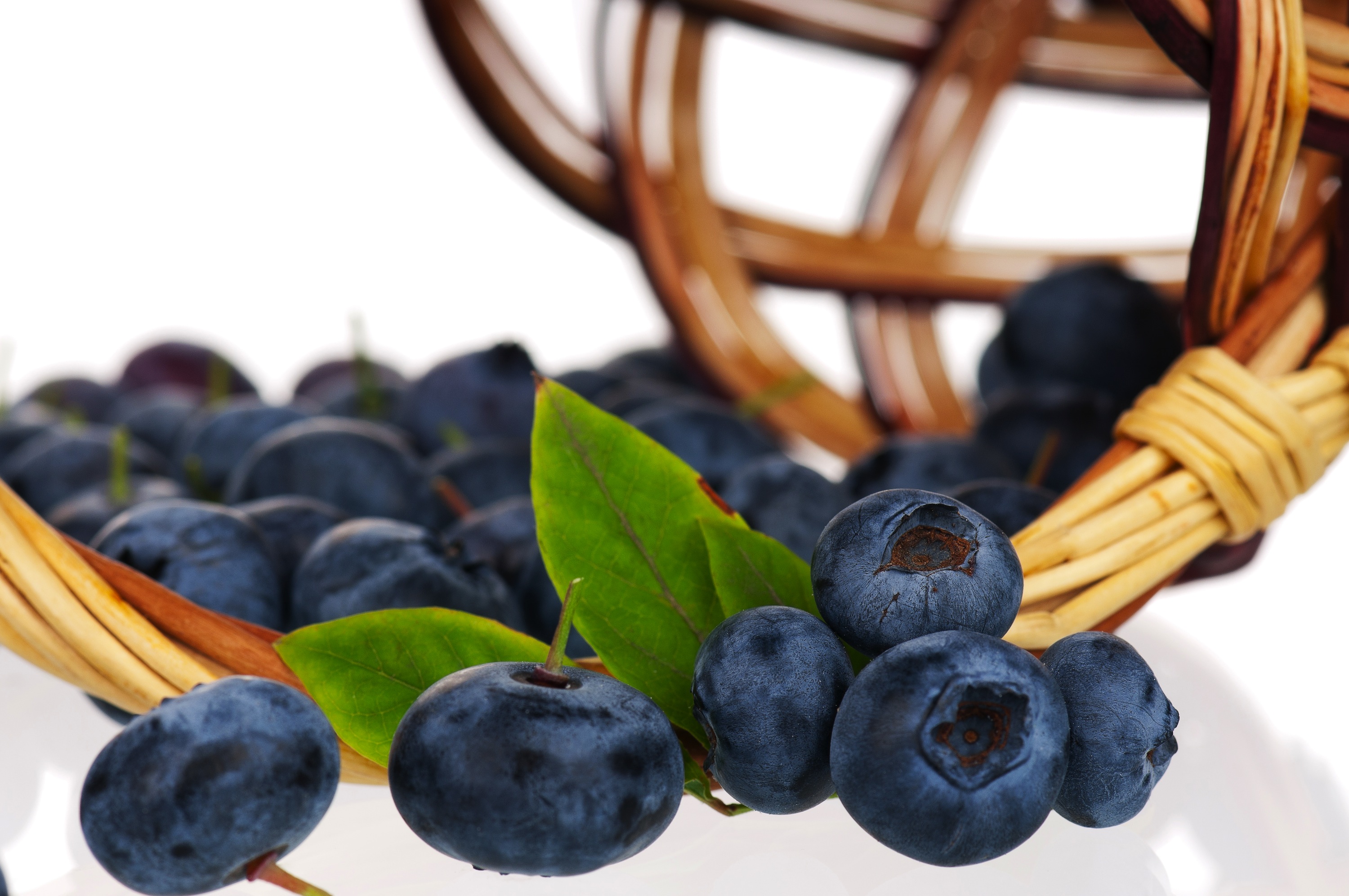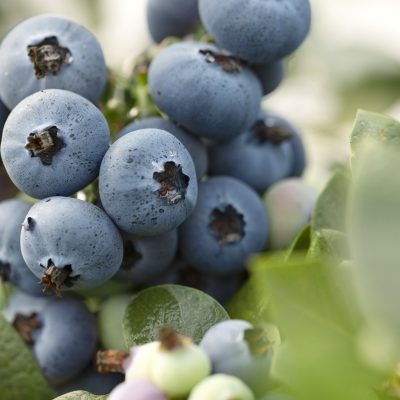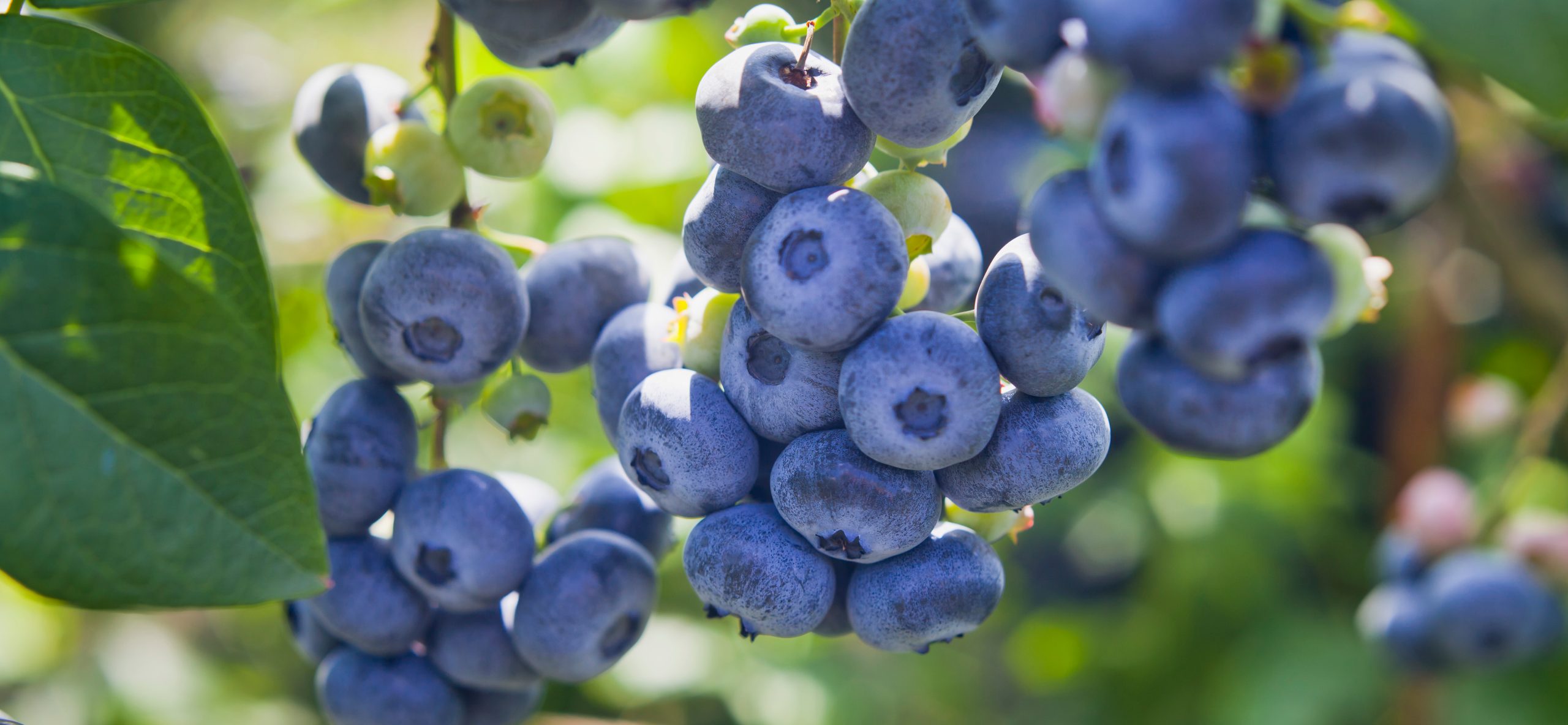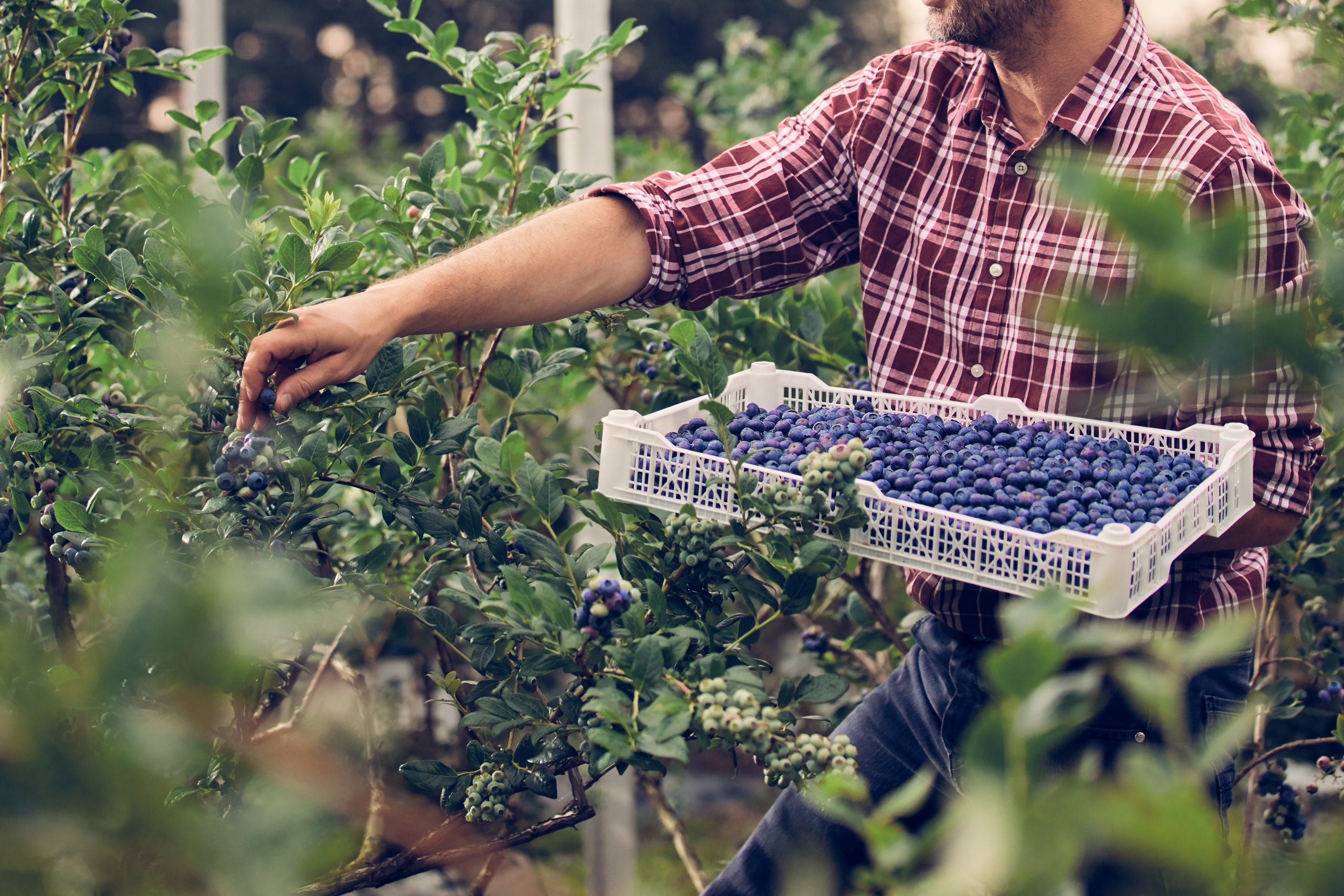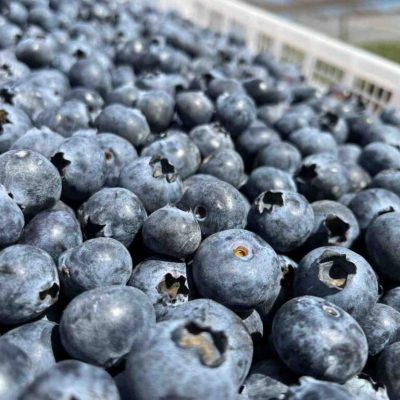Michigan growers out to recover from 2 bad blueberry years
Michigan blueberry growers are on track for crops to bounce back this season, thanks to a mild 2015-16 winter following two previous years of bitterly cold temps that hurt plants and led to lowered yields.
The growers are around the midway point and the fruits are expected to be around deep into September. But the growers on the 600 family farms that cultivate blueberries in the state aren’t in the clear yet.
“During the past two years, harsh winter conditions have held our state’s total production down,” said Larry Ensfield, CEO of MBG Marketing — a marketing co-op based in Grand Junction of more than 300 blueberry and blackberry growers across the U.S. and Canada. “This year’s mild winter will help the crop recover, but we will still be below the yield average for the amount of acres planted.”
Still, state production is expected to exceed 100 million pounds this year — a 26 percent increase over 2015. Michigan has about 22,000 acres of blueberries and that number continued to grow over the last five years, Ensfield said. The state record was 114 million pounds in 2013.
Michigan traditionally leads the nation in cultivated blueberries. Washington, Georgia and Oregon are also major producers.
“The late summer varieties are just getting started in the Southwest lower portion of the state, while the northern area of production will be about two weeks later, giving our state a good supply of fruit throughout the remainder of the season,” he said.
A good way to enjoy this season’s crop is with recipes in the new book from “Naturally Sweet,” (America’s Test Kitchen, 2016.) The cooks and editors came up with ways to reduce the sugar in a slew of desserts (including several blueberry desserts) by 30-50 percent.
If using frozen look for one of two types. Cultivated blueberries are different than wild blueberries, which are smaller and have a more intense taste than their cultivated counterparts. (Maine is by far the biggest producer of wild berries with yields that can also top 100 million pounds.)
A little less than half of the berries harvested in Michigan end up in markets, stands and u-pick baskets to be eaten fresh. About 53 percent end up as frozen and used in other products.
Most of the blueberries grown come from the west side of the state: Allegan, Berrien, Muskegon, Ottowa and Van Buren counties. Soil conditions and climate help make the west side of the state an ideal spot for the fruit, said Bob Carini of Carini Farms in West Olive, about six miles northwest of Holland.
“(Blueberries) are very specific on what kind of soil they like,” Carini said. “They like a real acid soil. It has to be on a high water table, but well drained. The soils here are perfect for that.”
The early part of the season was dry, but acceptable, Carini said. And he’s optimistic.
“This year is looking good,” he said.
But challenges remain, as is often the case with farming.
“Rainfall has been a wild card in growing this year’s crop,” Ensfield said this week. “Dry conditions prevail in some of the state’s growing areas, making for smaller berries, and placing a stress on bushes. However, some areas have had almost daily rainfall for the past 10 days, making a steady harvest difficult for growers. Lack of labor for fresh harvest this year has also been an issue for some growers, causing them to get behind on their harvest cycle.”
Even with the yearly challenges, science is helping overall, said Mark Villata, executive director of the California-based U.S. Highbush Blueberry Council.
“Over the past 20 years alone, the industry has unearthed mounds of scientific evidence on the health benefits of blueberries, doubled blueberry use on chain restaurant menus, begun shipping blueberries to countries across the globe and nearly tripled consumption in the U.S.,” he said. “The milestones and continued growth have resulted in the billion-dollar industry that exists today.”
Nationally, the industry is expected to grow 25 percent to 940 million pounds by 2019, according to the council.



